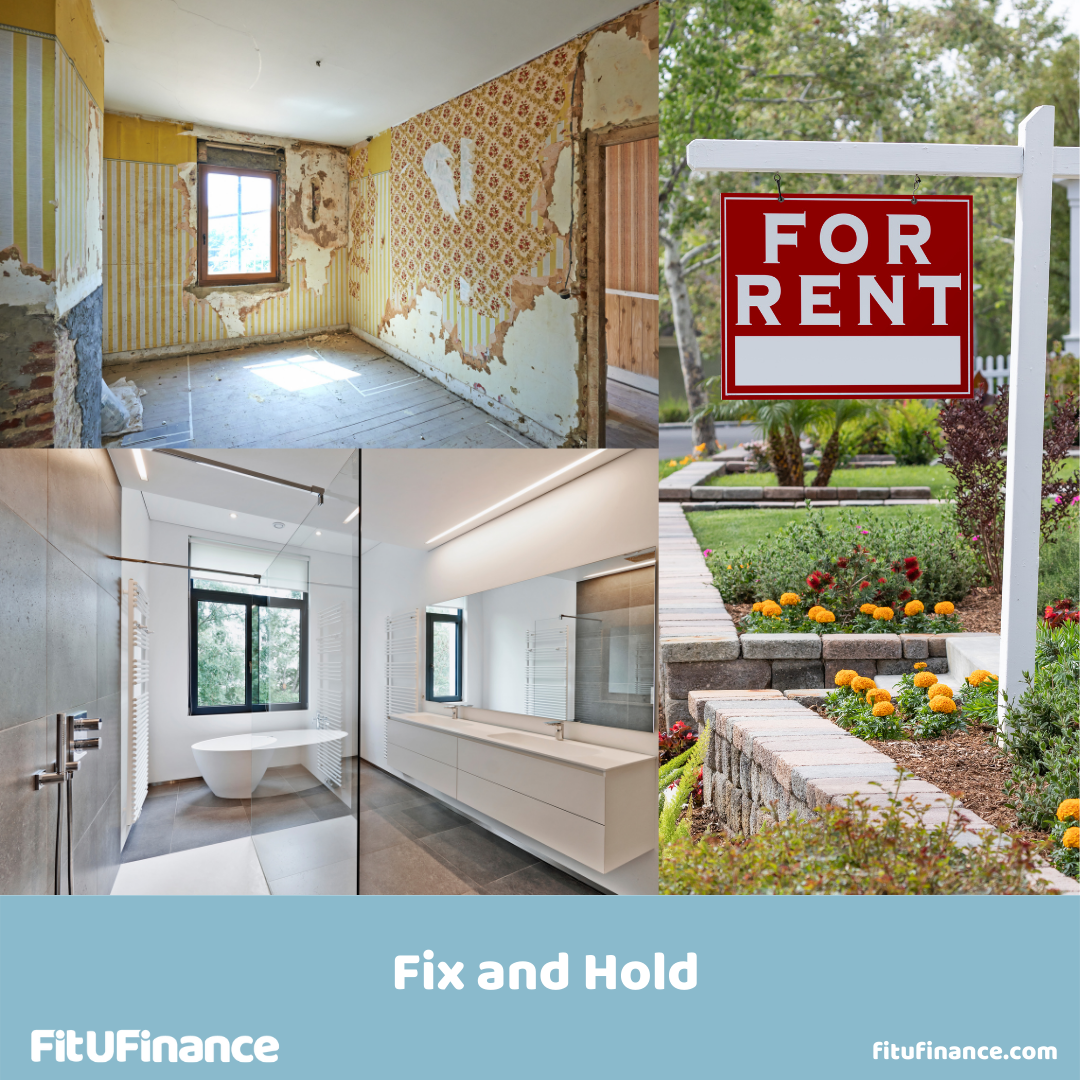Financing Fix and Hold Investment Properties

Fix and Hold Finance Options
Financing fix and hold properties can be extremely profitable and satisfying but you need to get your financing right. Clear goals with a very clear budget will help prevent any really unpleasant surprises. Identifying monthly spend once you have completed structural studies and have identified what needs restoration as well as knowing how long you want to keep the property will help determine the type of financing you go for.
The type of property you are restoring may also determine the finance options you can afford. Are you looking for a long-term tenant, is this a multi-tenant property, a mixed-use property, an Air BnB, or purely commercial?
You will need to be able to discuss your plan for what happens when the renovations are complete and you will need to have all the necessary paperwork in place to support any loan request.
There are lots of options for both the newbie real estate investors and the already established real estate investors. There are finance companies who offer up to 85% of the purchase price, as well as financing 100% of the renovation cost. Look for those lenders who specialize in Fix & Hold lending products. They can offer re-financing after the restoration is complete.
Some lenders will base the loan on the value of the property rather than the borrower. This may make it easier for those who have struggled to get conventional financing–due to foreclosure, or a short sale –can use the value of the asset as collateral. These types of loans are available for both those new to real estate investing and experienced real estate investors who are looking to free up liquidity or scale their business for growth. These loans can be used for single-family residences, multi-family, and mixed-use buildings. In fact, lenders will look favorably on all these options. So, what are your options? There are a few; a 203K loan, a hard money loan, or a conventional bank loan? But, what’s the difference between them?
A 203K Loan:
A conventional loan option for fix and hold investors specializing in renovation, or construction projects, and is backed by the FHA (Federal Housing Administration). A 203K loan has a 30year term, with a current APR between 3.3% -3.8% and up to 2.5 points due to the lender in origination fees. The investor is responsible for a minimum down payment of at least 3.5% of the total deal cost. There are restrictions on the type of renovations financed and there is a maximum dollar amount.
A hard money loan:
A real estate investment loan that is backed by a private lender instead of a bank. A hard money loan typically requires the investor to bring more capital to the project. On average a hard money loan will finance between 80% –90% of the total deal cost. This means the investor will need to have at least 10% to 20%. Additionally, interest rates are higher, currently, anywhere between 8% -11%, origination points are currently running between 0 –2%. These loans are for 6 -18 months and there are no prepayment penalties charged. We can then convert them into a long-term loan with 30year terms with rates starting at 4%.
A conventional bank loan:
The lender will typically look for a proven track record in financing fix and flip properties. A conventional bank loan will look for a successful history of at least two years in renovating properties. Typically, the interest rates from banks will be lower between 3% -6%. Banks will lend to money for flipping if you have an official business, a healthy credit score, and a proven track record of success in similar projects. You may have to wait several months to secure financing from a bank.
A hard money loan is an attractive option for real estate investors because the loan is based primarily on the property and the deal itself; there is no minimum credit score required. With a conventional 203K loan, a minimum credit score of 640 is required and a minimum of $35,000 in repairs must be completed. With a hard money loan, there isn’t, typically, a minimum number of renovations required. Conventional mortgages take at least 60 days to close, in the fix and hold world you need a lender that can fund a deal in days.
